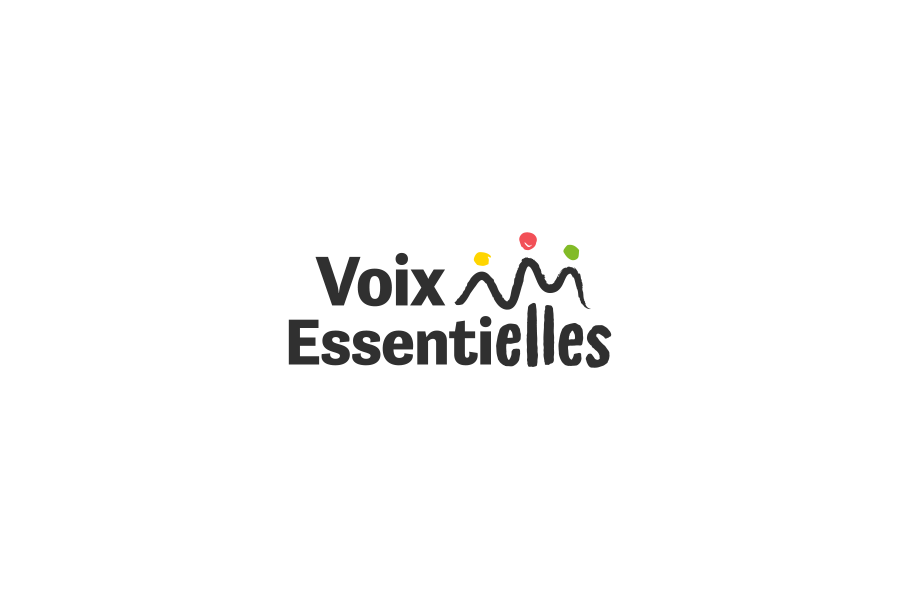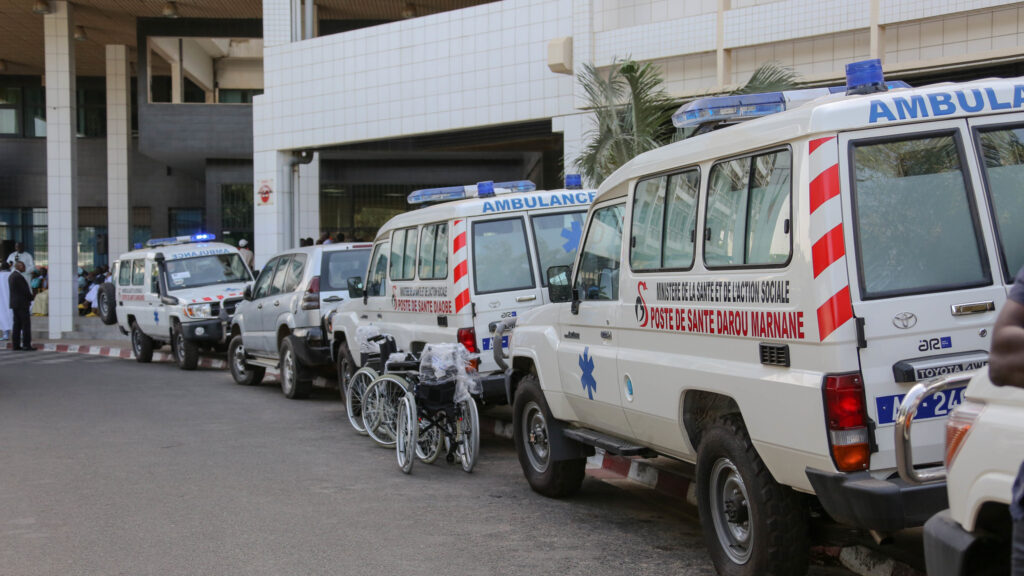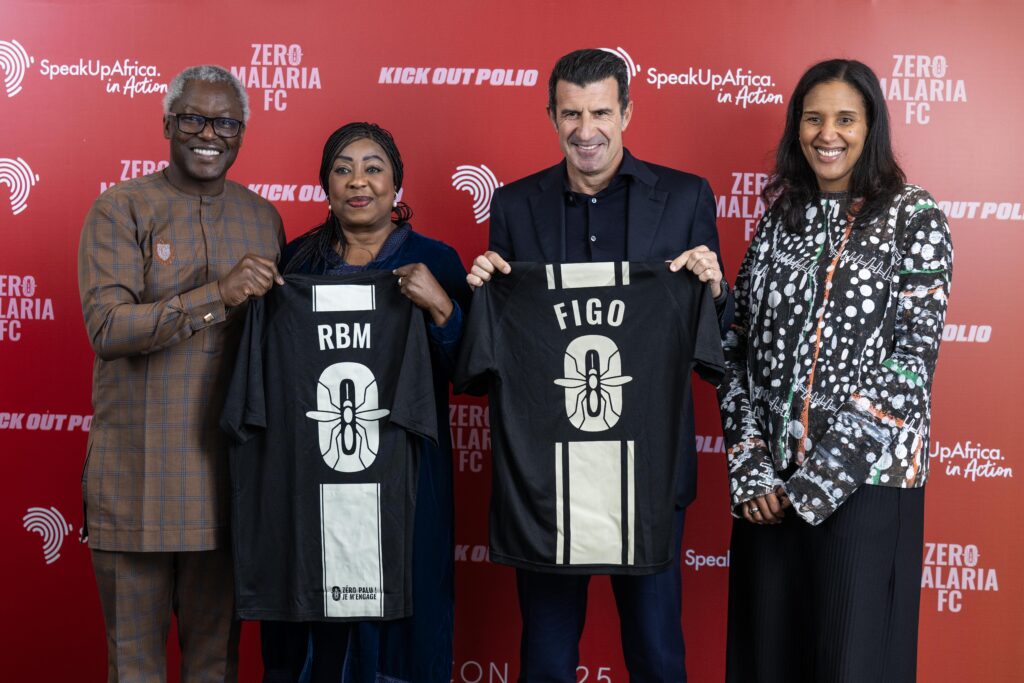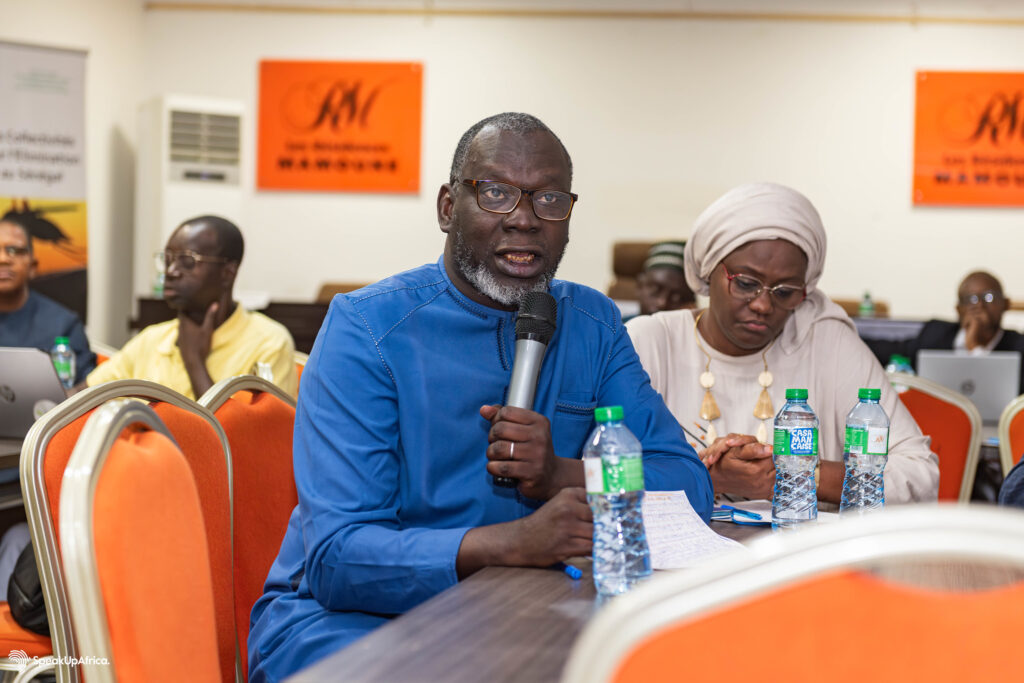From Stigma to Strength: Women Claiming Their Right to Menstrual Health
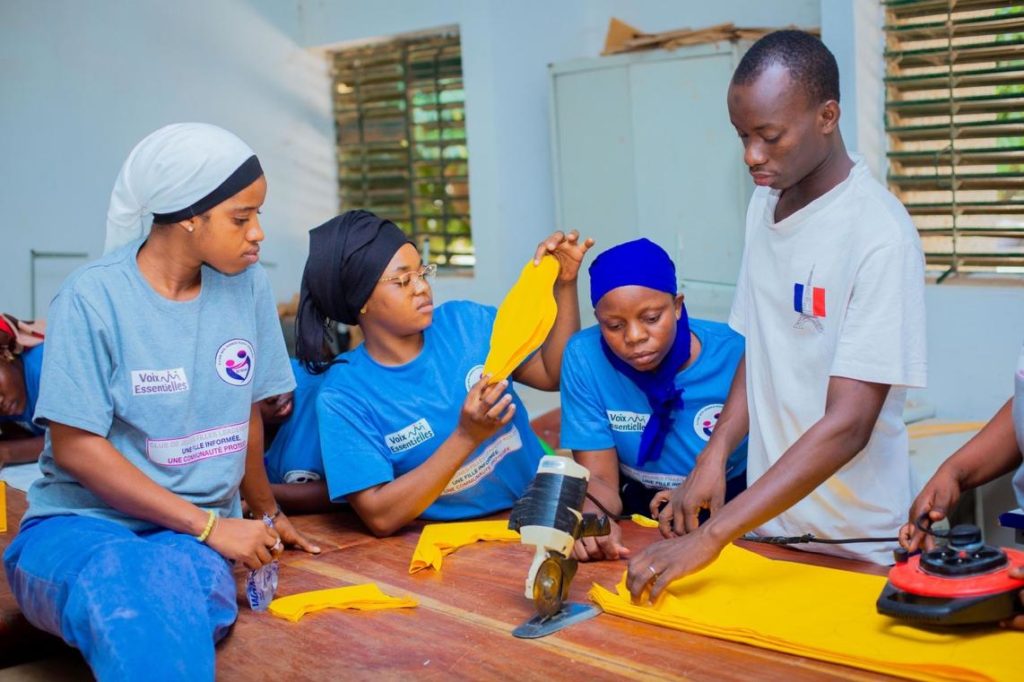
May 28 marks two powerful, yet often overlooked global observances: Menstrual Hygiene Day and the International Day of Action for Women’s Health.
Two dates, one message: health — and menstrual health in particular — remains a stark indicator of inequality for millions of women and girls across the world, especially on our continent.
In many parts of Africa, the lack of access to the essentials for safe menstrual management directly impacts girls’ and women’s safety, dignity, and autonomy. In sub-Saharan Africa, only 45% of adolescent girls are able to practice adequate menstrual hygiene. The challenges are layered — a lack of proper sanitation facilities, access to menstrual products, and even basic information. According to UNESCO, 1 in 10 girls misses school during her period. In Burkina Faso, over half of all women and girls lack access to modern menstrual products, safe toilets, or a hygienic environment to manage their periods with dignity.
Breaking Taboos, Bridging Struggles
Menstrual health cannot be tackled in isolation. Addressing this issue goes far beyond access to pads or basic menstrual education. It requires confronting the compounding challenges of disability, economic vulnerability, and gender norms — all of which deepen inequality.
That’s why, on this symbolic date, we are spotlighting five women-led organizations supported by the Voix EssentiELLEs initiative, each working at the crossroads of menstrual health and broader social change.
Senegal — Menstrual Health & Economic Empowerment
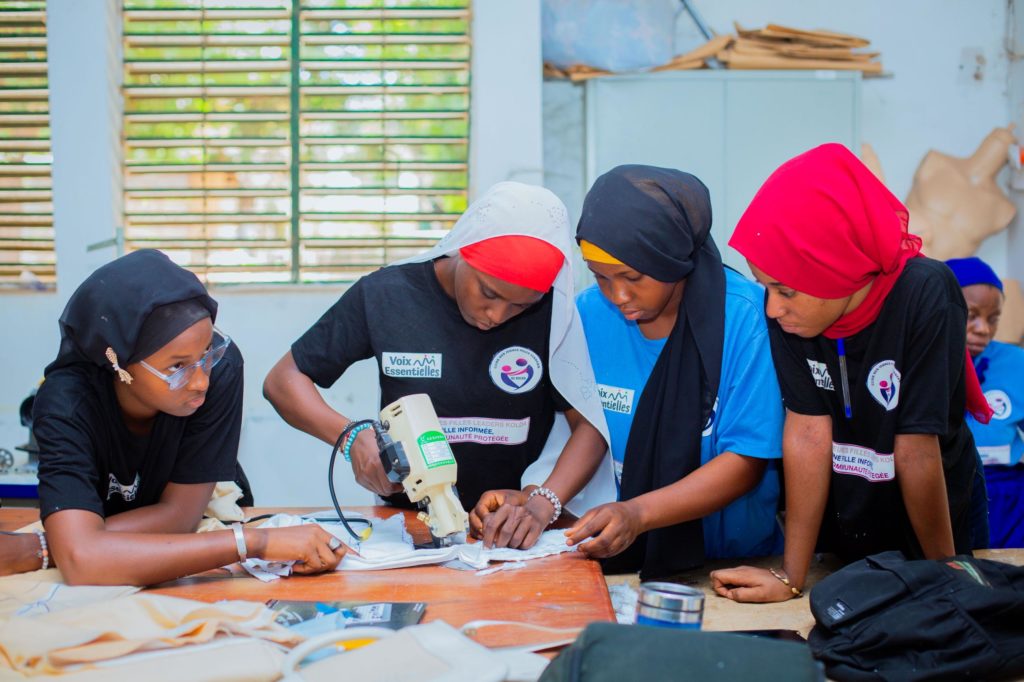
Club des Jeunes Filles de Kolda
In the southern region of Kolda, young girls gather in community clubs to talk about menstrual dignity and professional opportunities. Through panel discussions and workshops on making reusable sanitary pads, they connect sustainable menstrual hygiene with economic empowerment — affirming that period poverty cannot be addressed without economic justice.
Benin — Menstrual Health & Inclusive Digital Communication
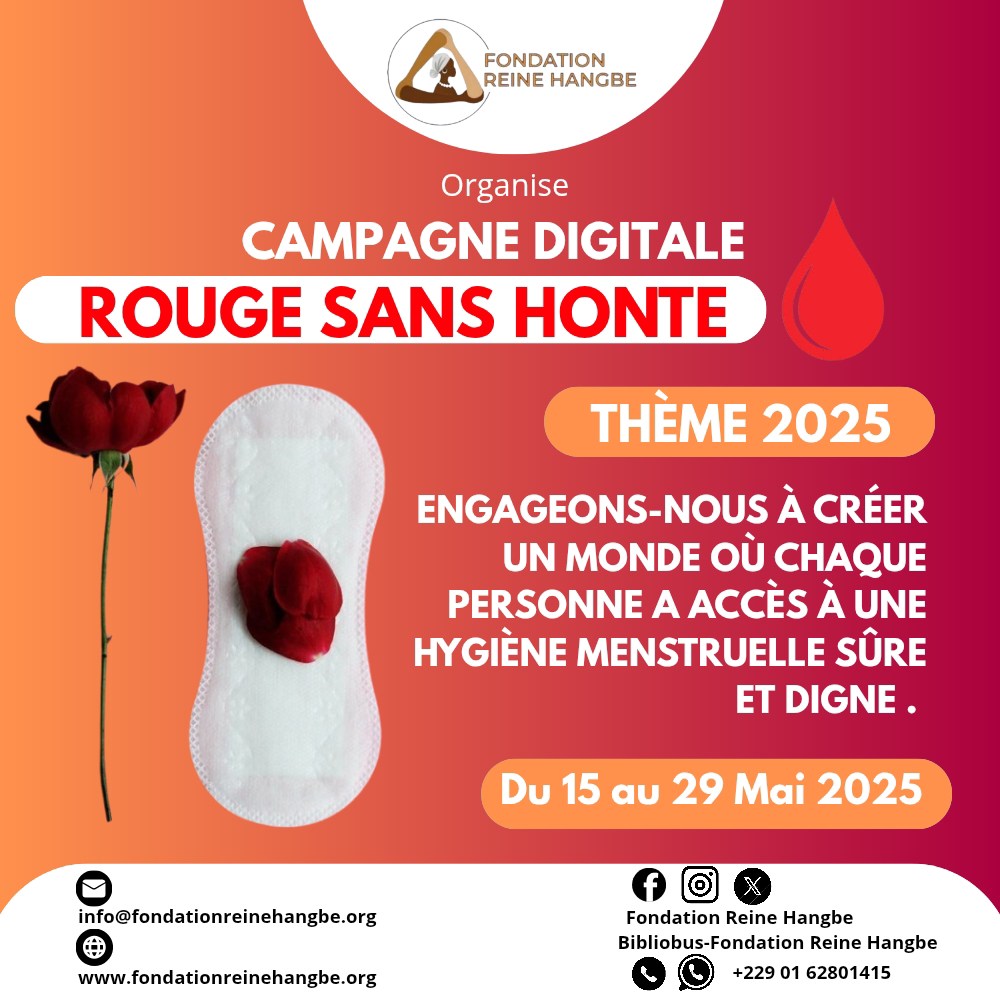
Fondation Reine Hangbe
With their bold campaign “Rouge Sans Honte” (Red Without Shame), the organization took to social media to reach youth, break taboos, and challenge myths. Their approach is modern, visual, and deeply rooted in women’s lived realities.
Côte d’Ivoire — Menstrual Health, Community & Media Mobilization
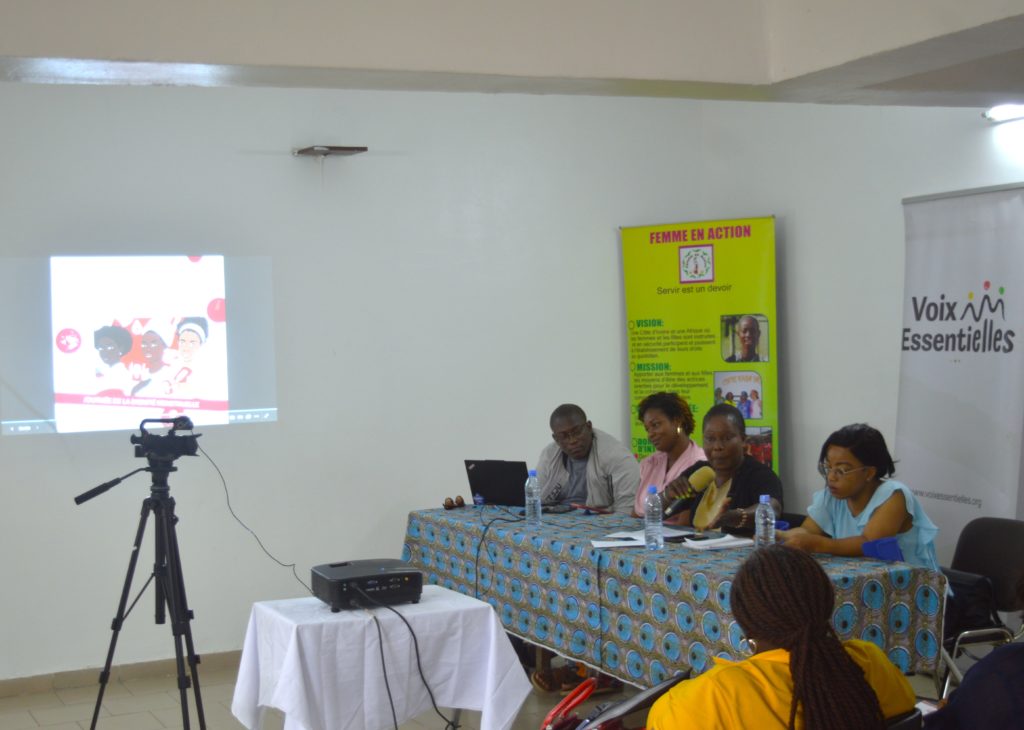
CACI, Overcome Women & Femme en Action
In Abidjan and Divo, the “Week of Periods” gives women a platform through community forums, advocacy events, and media campaigns. Partnering with journalists to promote Comprehensive Sexuality Education (CSE) in schools helps foster emotional development and healthier behaviors among youth.
Togo — Menstrual Health & Disability
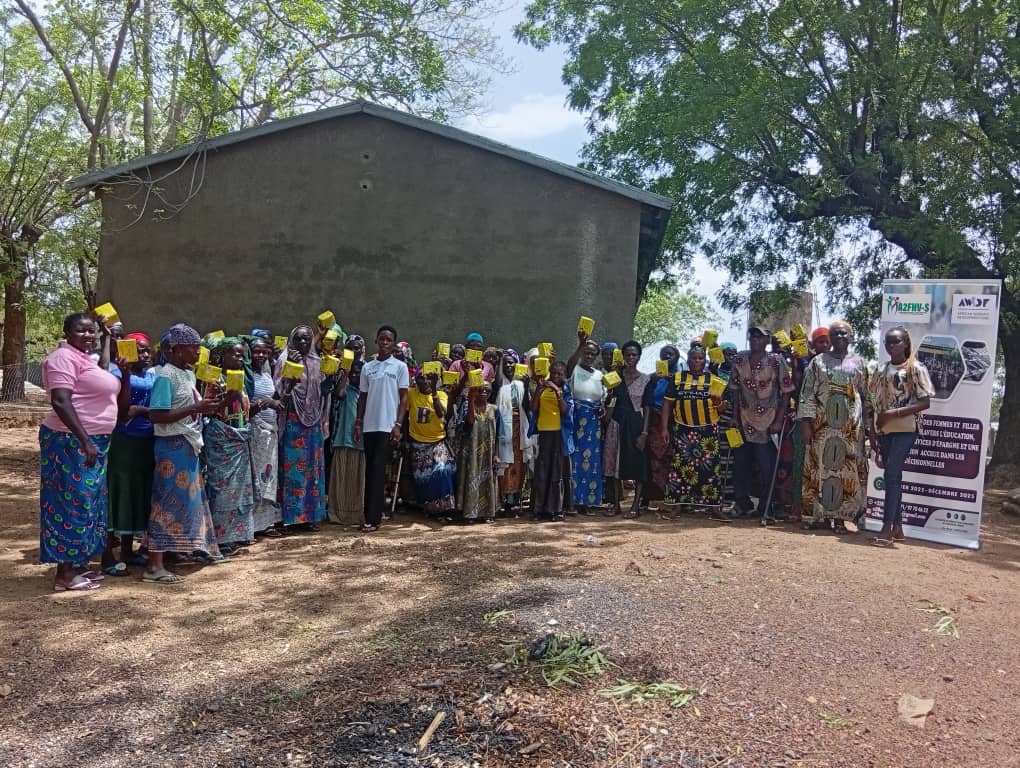
Association des Femmes et Filles Handicapées Vaillantes (Savanes region)
In Dapaong, 50 women and girls living with disabilities participated in a training and awareness session — receiving hygiene kits and a safe space to share. This initiative highlights a double stigma too often left unspoken: disability and menstruation.
Burkina Faso — Menstrual Health & Educational Innovation

IES Femmes
In Ouagadougou, menstrual health becomes a gateway to digital empowerment. Through hands-on workshops, women are introduced to available menstrual products and taught how to use digital tools to better understand and manage their cycles — turning menstruation into an entry point for information access and autonomy.
Investing in Women’s Health is Investing in Society
These five stories of community leadership reflect the broader mission of the Voix EssentiELLEs Fund: to resource and amplify local women-led solutions that are both systemic and sustainable. Since 2021, our support has gone beyond short-term aid. We’re building bold, rooted, structural responses by and for women.
Because periods should never be a barrier.
Because women’s health is not optional.
Because change begins when we listen to those leading it.
Together, let’s build a world that respects the rules.
